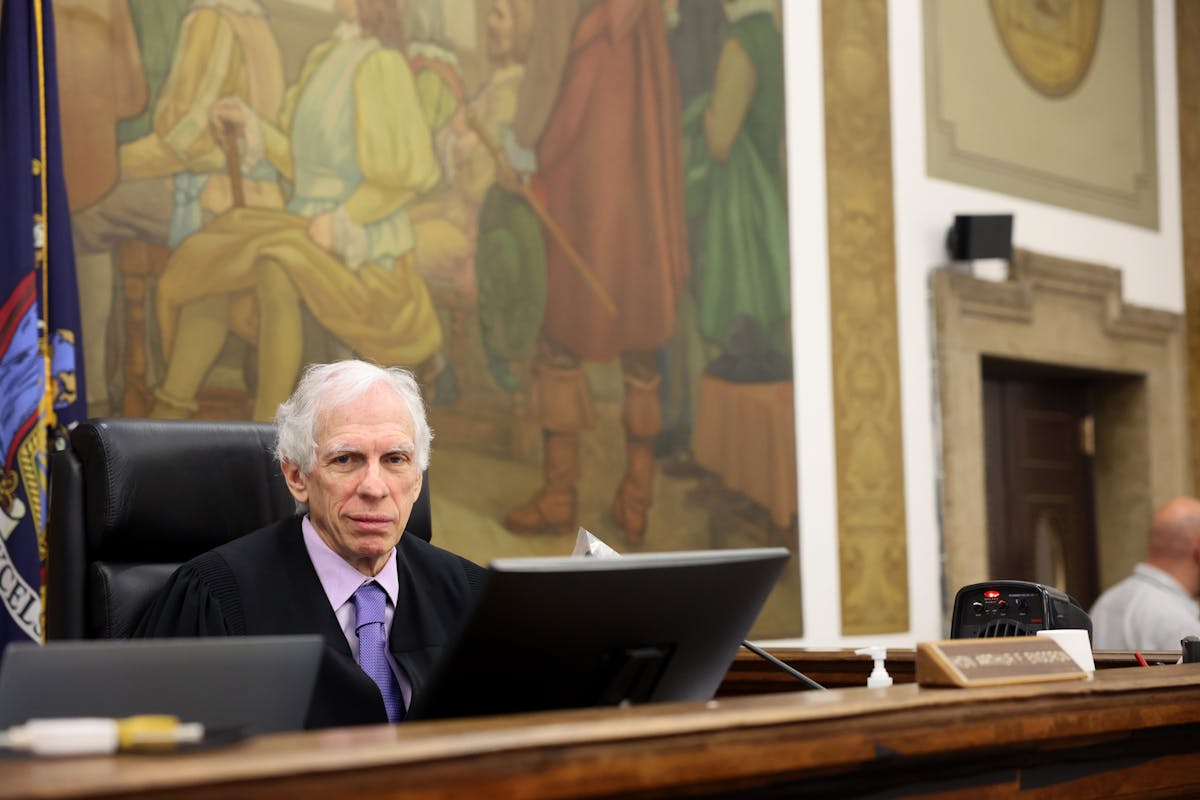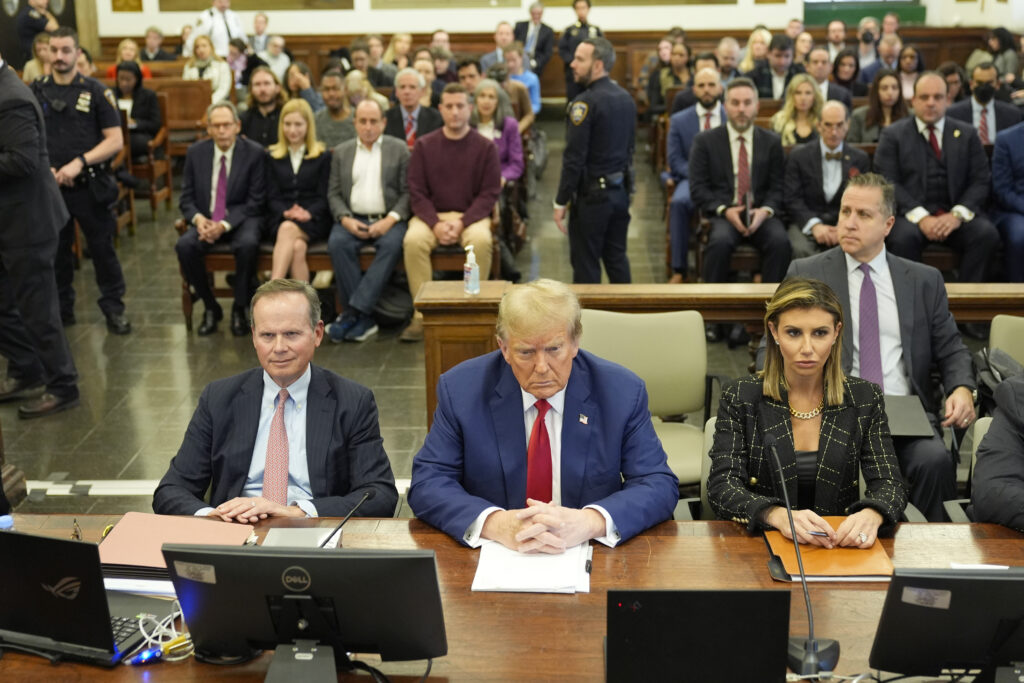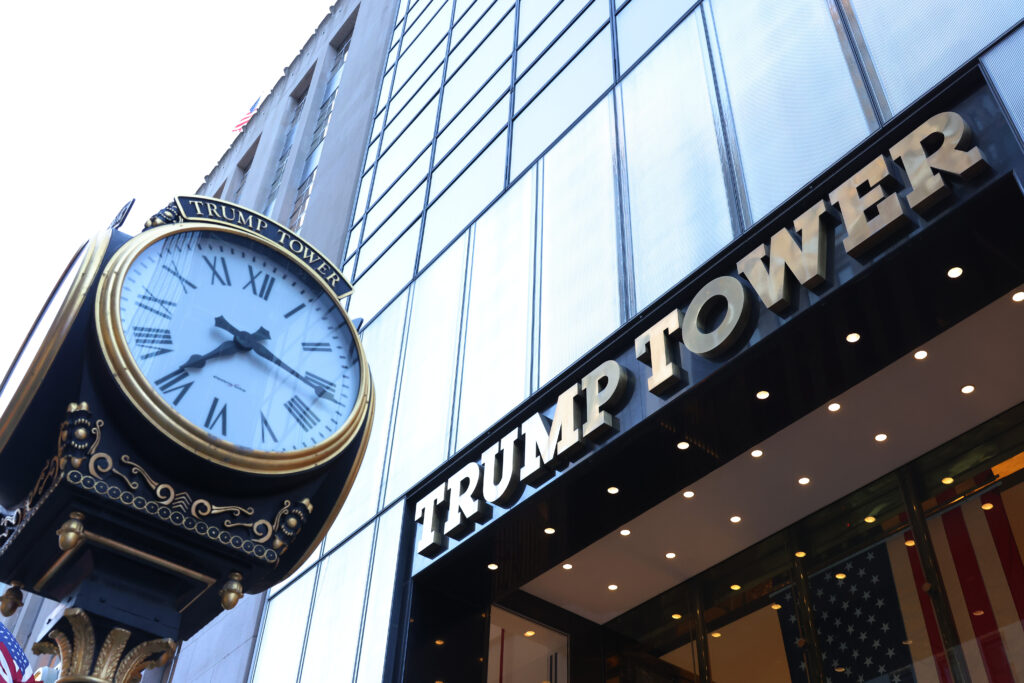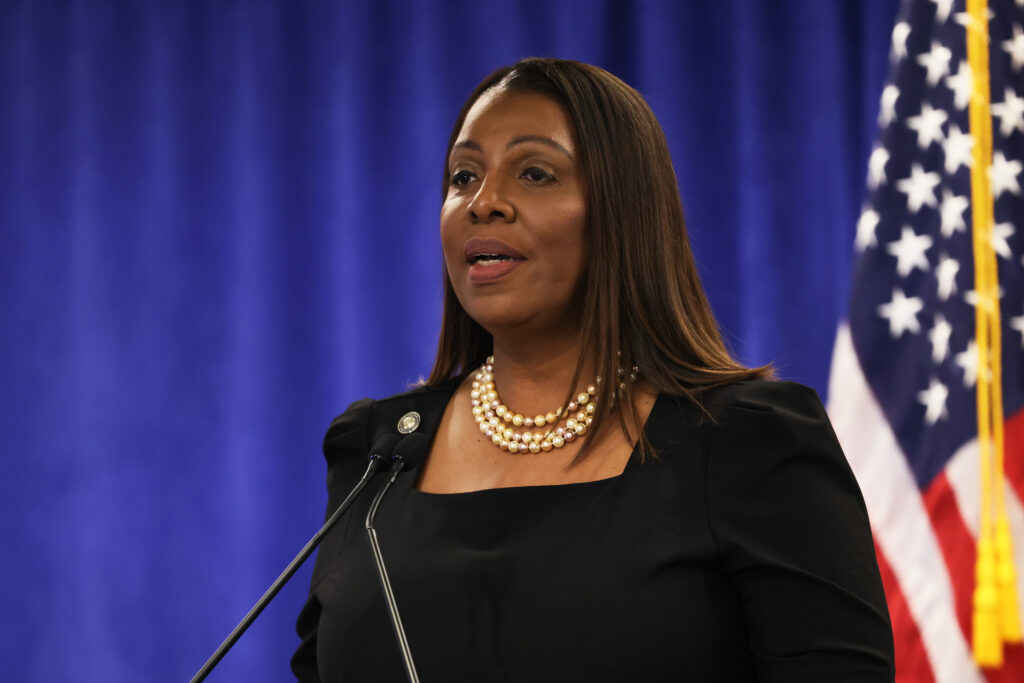Judge Approves Stricter Conditions on Trump’s $175 Million Bond in Fraud Case: Letitia James Cannot Seize His Assets, For Now
Mr. Trump’s attorneys and the New York attorney general’s office have resolved their dispute over the bond by agreeing to new safeguards that would keep Mr. Trump from absconding with the money.

The judge in President Trump’s civil fraud case on Monday approved safeguards for the $175 million bond Mr. Trump posted to appeal the $464 million judgment in the case. This came after the attorney general, Letitia James, objected to the bond agreement, which temporarily blocked her from seizing Mr. Trump’s trophy assets.
The lingering bond issue was settled during a hearing in front of New York State Supreme Court Justice Arthur Engoron.
A short distance from the criminal court at Downtown Manhattan, where attorneys were holding opening statements for Mr. Trump’s hush-money trial, another set of lawyers was debating whether or not the $175 million bond Mr. Trump secured last month was acceptable or not.
“Where is everyone?” Judge Engoron joked, according to ABC News. His courtroom, where he had held the two-and-half months long civil fraud trial last winter, was rather empty. Many of the journalists who’d attended the civil fraud proceedings were at the opening statements for Mr. Trump’s criminal trial.

Outside the courtroom for that trial on Monday, the former president addressed the bond issue, which was clearly on his mind. “We’ll go to another subject because just a few blocks away,” Mr. Trump said during a press conference that lasted nearly ten minutes. “They had a trial on the $175 million settlement issue… And the judge really didn’t know anything. He didn’t know about collateral securities. He said supposing it goes down. Well, it doesn’t go down because it’s cash. I put up $175 million in cash. And we have a bonding company… and he challenged the bonding company, that maybe the bonding company was no good. Well, they’re good, and they also have $175 million of collateral…. He had no idea what anything meant.”
But Judge Engoron seemed to have a pretty good idea. As the Sun reported, Ms.James was challenging the $175 million bond Mr. Trump secured in order to appeal the nearly half-billion judgment Judge Engoron issued in February. The attorney general had sued Mr. Trump and others for business fraud, alleging that he, his two adult sons, and two veteran Trump Organization employees, the former chief financial officer, Allen Weisselberg, and former controller, Jeff McConney, falsified financial statements in a decades-long scheme to gain better bank loans and insurance policies.
Judge Engoron found the Trumps guilty and awarded the state more than $464 million dollars. To appeal the verdict, Mr. Trump had to find a company that would put up a bond, a “surety,” a legal agreement, assuring New York’s court system that it would cover the judgment against Mr. Trump should he lose his appeal and not pay.
In a victory for Mr. Trump, a mid-level appeals court lowered the amount for the bond from the $464-plus million to $175 million after Mr Trump had argued he was unable to find anyone who would cover such a massive sum for a relatively small, private company. The bond he then provided was underwritten by Knight Specialty Insurance (KSIC), a Wilmington, Delaware-based part of the Los Angeles-based Knight Insurance Group, which is owned by Don Hankey, a Trump supporter and billionaire known as the king of subprime car loans.



By securing that bond, Mr. Trump blocked Ms. James, at least for now, from moving to seize his trophy assets such as Trump Tower on Fifth Avenue, the Trump National Golf Club in Westchester County and his skyscraper at 40 Wall Street.
Ms. James pushed back. On Friday, she criticized the collateral agreement between Mr.Trump and KSIC. In return for the bond, Mr. Trump had offered a priority lien on a Schwab brokerage account that, according to Ms. James, held “just over $175 million in ‘cash.’” Concerning to Ms. James was the fact that Mr. Trump maintained full control over the account. He could transfer money in and out, and was only required to notify KSIC two days after he had done so, and not before. In other words, Ms. James worried Mr. Trump would run off with the money and no one could stop him.
During the Monday hearing, attorney general’s special counsel, Andrew Amer, compared the collateral deal to a “huge loophole … that quite frankly you could drive a Mack Truck through,” ABC News reported. Mr. Amer further explained that the state needed assurance, also because the insurance company was relatively small and out-of-state. The attorney general’s office also argued in their filing that Mr. Hankey’s company was not qualified in New York.
Judge Engoron, never short of witty remarks, asked the defense, “what if they break the agreement?” He added, “it all seems like a house of cards,” USA Today wrote.

A defense attorney, Christopher Kise, had brought two witnesses to the hearing. But he didn’t need to put them on the stand. The defense agreed to the conditions proposed by the attorney general, granting Knight Insurance Group exclusive control of the $175 million, while submitting to the jurisdiction of the New York state court and promising not to move the money into mutual funds or engage in any other financial maneuverings.
“What we’re really after here is to move on with litigation, with the process,” Mr. Kise said, as reported by ABC News. “The cash isn’t going anywhere…it’s cash. There is no ambiguity.”
This should put the case to rest, at least until the summer. A clerk at the appeals court told the Sun last month that the appeals briefs have to be submitted in early July. The appeal itself is expected to take several months.

